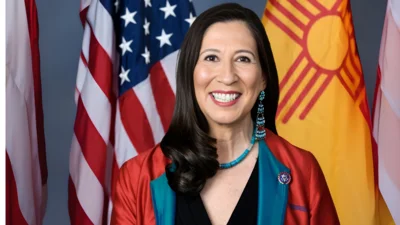Anjali Taneja House District 18 | Sierra Club Rio Grande Chapter
The Environmental Protection Agency (EPA) has finalized new safeguards to reduce methane emissions from the oil and gas industry. The announcement was made by New Mexico Governor Michelle Lujan Grisham and EPA Administrator Michael Regan at the UN Climate Summit.
Methane is a significant greenhouse gas, more than 80 times as potent as carbon dioxide over a 20-year period. It has been identified as responsible for about one-quarter of global warming to date. The issue gained prominence in New Mexico in 2014 when NASA satellite images revealed a methane hotspot over the Four Corners area.
New Mexico has been proactive in addressing methane emissions, with state-level rules serving as a model for federal regulations. "New Mexico passed nation-leading rules in 2021 and 2022," said Demis Foster, Executive Director of Conservation Voters New Mexico. These measures aim to protect public health and address climate change impacts exacerbated by fossil fuel operations.
The U.S. oil and gas sector emits approximately 16 million metric tons of methane annually, with significant contributions from New Mexico's San Juan Basin and Permian Basin regions. The new EPA standards aim to cut these emissions through strengthened leak detection requirements, non-polluting equipment installations, phased prohibitions on routine flaring at new wells, and community monitoring programs targeting super-emitters.
Community reactions have highlighted the importance of enforcement for these regulations. Antoinette Reyes from Sierra Club Rio Grande Chapter emphasized the need for energetic enforcement to ensure air quality improvements for communities affected by pollution from oil and gas operations.
The potential benefits of these regulations extend beyond environmental impact; they are expected to create jobs in manufacturing and service sectors related to leak detection and repair provisions.
Natalie Levine from the National Parks Conservation Association expressed support for the increased protections against methane pollution that affect national parks' ecosystems.
Overall, while challenges remain in addressing fossil fuel-related harms, Erik Schlenker-Goodrich from Western Environmental Law Center sees this development as an important step toward a climate-resilient future.
###









